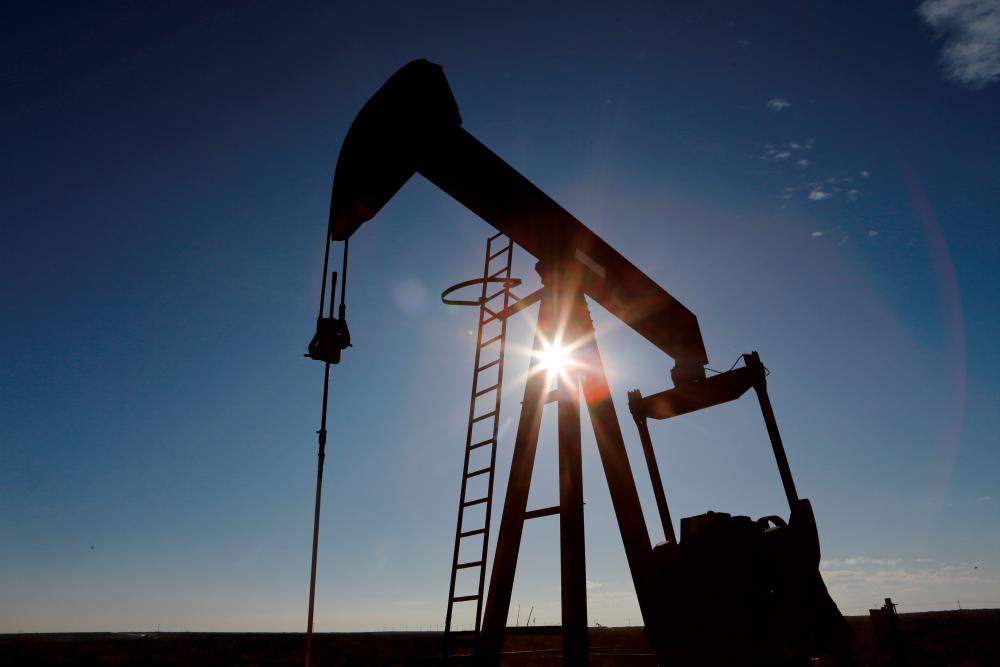DUBAI/LONDON: The world's top oil producers Saudi Arabia, Russia and the United States still seemed at odds today before this week's meetings on potentially big output cuts to shore up crude prices that have been hammered by the coronavirus crisis.
Saudi Arabia and Russia, which fell out when a previous pact on curbing supplies collapsed in March, have signalled they could agree deep cuts to crude output but only if the United States and others outside a group known as Opec+ joined in.
But the US Department of Energy said on Tuesday that US output was already falling without government action, echoing views from the White House that it would not intervene, even as global demand for crude has plunged by as much as 30%.
US President Donald Trump said last week a deal he had brokered with Saudi Arabia and Russia could lead to cuts of as much as 15% of global supplies, an unprecedented level.
Yet Moscow and Riyadh have yet to publicly indicate any agreement on the level of any reductions or how to distribute them among Opec+, which includes the Organization of the Petroleum Exporting Countries, Russia and other producers.
"Let's wait for tomorrow or the day after," said Kremlin spokesman Dmitry Peskov, when asked about Russia's position before tomorrow's Opec+ talks.
Energy ministers from the Group of 20 nations (G20) also hold a video conference.
Moscow, Riyadh and others need to agree on what national production level, or baseline, for calculating cuts, an issue muddied since last month's acrimonious Opec+ meeting in Vienna that led to limits being scrapped and race for market share that flooded an already oversupplied market with extra crude.
Saudi Arabia ramped up output to a record 12.3. million bpd in April, up from below 10 million bpd in March. The kingdom's Gulf allies, Kuwait and the United Arab Emirates, also raised production.
Opec sources said Riyadh wanted any cuts calculated from April levels. But Russia has said cuts should be based on first-quarter levels. "The issue is still the baseline," an Opec source said.
Asked about what baselines were being negotiated, the source said: "April versus anything else before April."
Russian TASS news agency said any cuts could last three months starting from May. Others have not indicated how long they could run.
Iran, which was exempted from the previous Opec+ deal, said details such as the baseline and the contributions by the United States and others Canada, should have been agreed before any meeting was scheduled.
Iranian Oil Minister Bijan Zanganeh said that, "in the absence of any clear and consensual outcome", a failure of talks could "aggravate the current low price environment even further".
Oil prices, which fell to their lowest in almost two decades in March, are still trading at half their level at the end of 2019, before the coronavirus crisis prompted governments to tell people to stay home and fuel demand plummeted.
Today, oil prices steadied near US$32 a barrel, supported by hopes that tomorrow’s Opec+ meeting will trigger output cuts to shore up prices.
"The coming extraordinary producing-countries meeting is the only hope on the horizon for the market," said Bjornar Tonhaugen of Rystad Energy. "Nobody wants to go short ahead of what could be a 'positive surprise' by Opec++."
Brent crude was up 11 cents, or 0.3%, at US$31.98 by 1322 GMT after falling 3.6% on Tuesday. US West Texas Intermediate crude rose 55 cents to US$24.18. – Reuters










